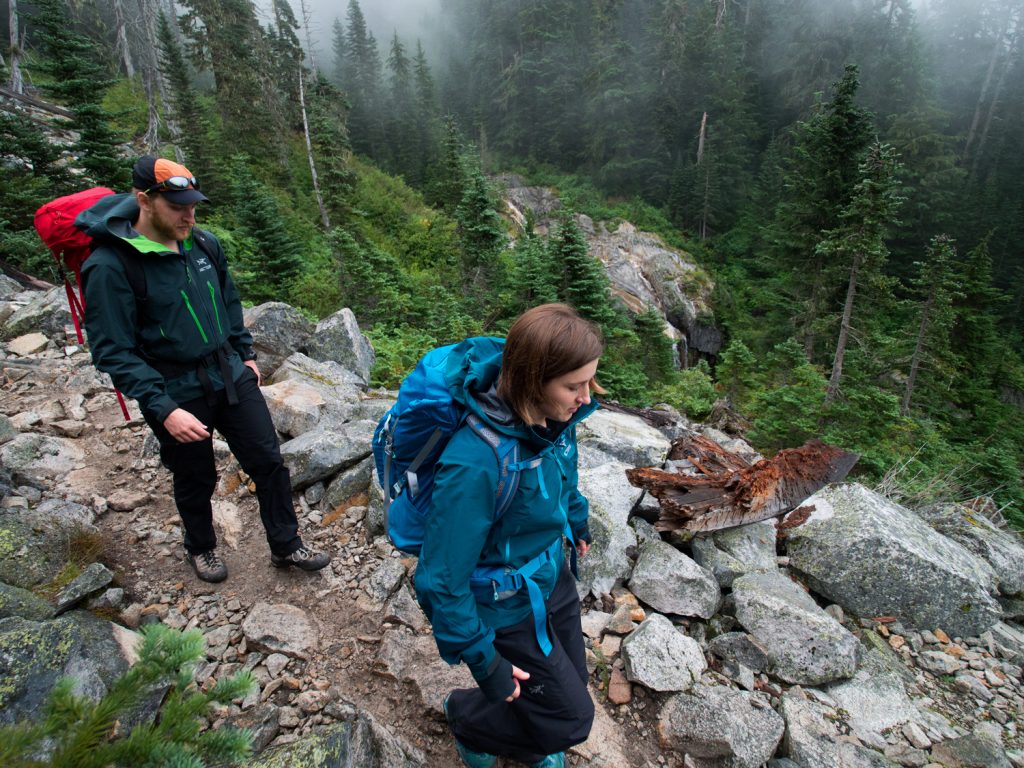We hear this question a lot from new and experienced hikers alike: How much should your backpack weigh?
Lots of factors go into determining pack weight, making it tough to give an exact weight recommendation for every hiker. To get some help, we turned to one of our pack-fit pros, Valerie Loughney, from our REI Silverdale store in Washington.
When determining your pack weight, follow these very general guidelines:
- A loaded backpacking pack should not weigh more than about 20 percent of your body weight.
- A loaded day hiking pack should not weigh more than about 10 percent of your body weight.
So, for example, a hiker who weighs 150 pounds should strive to carry 30 pounds or less while backpacking and 15 pounds or less while day hiking. Using these body weight percentages as a guide will help you keep your pack at a manageable weight. However, they don’t work in every situation. For instance, very petite backpackers will often end up carrying more than 20 percent because you can only get your pack weight so low. In addition to body weight, Loughney says, the following factors play a big part in the overall weight of your pack:
- Trip duration: The longer your trip, the more food, water and fuel you’ll need to carry, which, of course, adds weight to your pack. Even on multiday adventures, you’ll still want your pack close to 20 percent of your body weight, so you’ll need to be extra thoughtful about the gear and clothing you’re carrying to compensate for all that extra gear.
- Season/weather: If you’re heading out in frigid temps, you’ll need to have warmer, heavier clothing and gear than if you’re trekking in sunny summer weather.
- Personal preference: Some people value comfort at camp and are willing to accept the inherent weight that comes with hauling in luxuries like a hammock, extra clothes and a thick, cushy sleeping pad. Others are OK with wearing the same clothes for days on end and sleeping on a lightweight pad.
How to Reduce Pack Weight

Most hikers and backpackers see the value in carrying less weight: It can help you travel faster, farther and more comfortably. However, keep in mind that you don’t want to compromise your well-being by skimping on certain items, such as a first-aid kit and other Ten Essentials. You can still choose lightweight versions of these, but don’t leave them out entirely. Also, don’t go so light that you have to rely on your hiking buddies for extra food or a warm layer. No one likes a moocher.
With that said, Loughney offers these suggestions for reducing pack weight:
Know your base weight: Base weight is how much your loaded pack weighs, minus “consumables,” such as food, water and fuel. You exclude these things because their amounts vary trip to trip and will decrease throughout your journey as you eat, drink and cook. But everything else that goes in your pack, such as your tent, sleeping bag, water filter, stove and clothing, will not change much from trip to trip. Knowing your base weight gives you a consistent number that you can work on reducing.
Some backpackers define themselves based on their pack base weight. For instance, you’re generally considered an ultralight backpacker…





